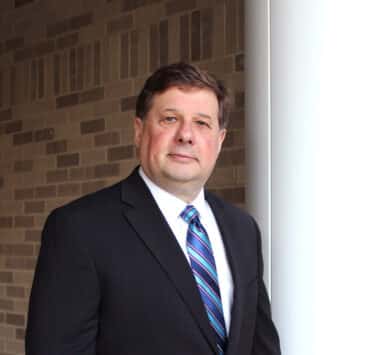Jim Hopwood was a turnaround guy. The current senior vice president and CFO at Behavioral Health Group (BHG) earned his stripes doing some of the hardest financial work there is in healthcare—or any industry for that matter: trying to get an organization back to zero.
“I was used to working with a company that needed to be rebuilt, a company that couldn’t produce enough income to meet its financial obligations,” Hopwood reflects. “Coming here wasn’t a turnaround situation, but it was an incredible opportunity to serve a patient population that needs our help.”
The largest network of Joint Commission-accredited outpatient opioid treatment and recovery centers in the United States wasn’t in turnaround mode when Hopwood arrived in 2019. And, unlike so many companies in the pandemic environment of the following year, the demand BHG experienced only increased as lockdown stress spiked substance use. More and more people sought help for their addiction and mental health issues.
But COVID-19 triggered Hopwood’s early turnaround instincts nonetheless. Experienced in compiling thirteen-week cash flow plans for struggling organizations, and with the onset of one of the most perplexing two years of the last century, Hopwood wasn’t about to stop.
“It was natural to assemble that projection right away, because it was just my gut reaction,” Hopwood remembers. “Fortunately, BHG’s census continued to grow and I never had to look at it much after I made it.”
When Hopwood got to BHG, the organization had fifty-four locations. At present, they’re right around 117. They’ve more than doubled their footprint since Hopwood came aboard, and it’s put the CFO in the position of not just steadying a ship, he’s helping enable the desperately-needed next wave of treatment options for those struggling with substance use disorder.
“We’re working to expand the types of programs that we offer to make sure we can provide the best outcome possible for any particular patient.”
Jim Hopwood
Hopwood credits the work of CEO Jay Higham and Chief Medical Officer Benjamin Nordstrom, whose guiding vision helps establish a new standard of care for treating addiction issues. That starts with understanding that it’s rarely just a single issue that needs to be addressed.
“Medication assisted treatment is a data-proven and successful therapy for substance use disorder. Nonetheless, we’re working to expand the types of programs that we offer to make sure we can provide the best outcome possible for any particular patient,” Hopwood explains. “Many substance use disorder patients have co-ocurring mental health conditions, and these are issues a traditional substance use clinic hasn’t addressed.”
BHG is expanding services to treat mental health conditions in the same setting. The convenience can help patients stay on their recovery journey long term. Then, there is life beyond addiction.
“Here at MedSTAT, we are especially proud of our association with Jim and BHG,” says CEO Jonathan Connell. “Through the pandemic Jim ensured high quality patient care by investing in strong, reliable, vendor relationships. We strive daily to preserve the trust he has put in MedSTAT as a valued source of medical supplies. We look forward to a lasting and beneficial partnership with Jim and the BHG team.”
Through collaborative community partnerships, BHG also helps guide patients in tackling challenges like workforce return, food and housing security, and all of the difficulties one might face when rebuilding their lives in recovery. Unfortunately, navigating what governments and insurers are willing to pay for services always proves a challenge, and the mandates for what that service entails can often seem contradictory. Or just plain ineffective.
Hopwood says, “To truly combat the epidemic, our country needs to address one issue that surfaces repeatedly: the difference between a proactive and a reactive approach. The substance use industry started accepting Medicare in January of 2020; and Medicaid has only covered treatment since the late 2010s. The support we provide to this population needs to go much further.”
Hopwood took the lag as a personal challenge. The CFO’s financial expertise provides a much-needed know-how to an industry with a nascent institutional understanding of third-party payers and billing. “I saw something that needed my help,” Hopwood says. “It’s been a privilege to bring my experience to an organization that is growing quickly and is really helping people.”
“It’s been a privilege to bring my experience to an organization that is growing quickly and is really helping people.”
Jim Hopwood
Hopwood also remains deeply interested in how the organization will continually leverage the volumes of data it collects.
“I love the idea of being able to help explain a situation or diagnosis with the data we’ve collected and analyzed,” Hopwood says. For example, BHG crunched data and discovered that the number of counseling sessions a patient receives early in their treatment has statistical significance and can be used to predict their likelihood of staying through the first 90-day treatment cycle.
“That may be a simple example, but it just demonstrates what you’re able to accomplish if you understand what you’re doing with all of this data,” he explains. “I love being able to make that data accessible and understandable for a broader audience. Our local operations teams utilize the data we have collected on a daily basis to better understand and optimize their treatment programs.”
That passion for making information accessible is a hallmark of Hopwood’s leadership. Too often, he says, the financial side of a business lays out the numbers with the attitude of “this is how it is, deal with it.” That’s never been his way. He reached his level by investing time and effort into making sure that he acts as a true partner, offering advice and opportunities instead of dictates and ultimatums.
“It has been a privilege to partner with Jim and the team at Behavioral Health Group and help support the important work they are doing to best serve their patients during this critical time of the opioid epidemic,” says David Watkins, director of strategic accounts at Hikma.
Hopwood also applied his expertise to the company’s 401k committee. He says he wants to make sure those at BHG can be confident in the investments being made for their futures. It doesn’t leave a lot of free time for Hopwood, who admits he spends any spare minute researching investment opportunities.
“What’s important to me is thinking ahead and investing for the future. Not everybody does,” Hopwood says. “I’m just the kind of person who thinks about how I can help everybody do the same.”
As a lead arranger of healthcare loans for credit facilities up to $1B, Capital One Healthcare has specialized experience in more than 40 industry sectors. Supported by the resources of a Top 10 Commercial Bank and a dedicated Behavioral Health Group, our clients have access to flexible, tailored financial solutions.


